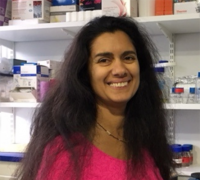Pandemics & Infectious Diseases
Pollution
Covid-19
Water Quality
AXA Awards
United States
Better Targeted COVID-19 Disease Management Through Wastewaters Monitoring
Dr. Mari Winkler seeks to improve mapping of the types of communities that are more likely to be infected by the virus. Monitoring wastewater allows us to “understand social disparities, enabling comparison of neighborhoods with varying demographics and access to testing,” according to the researcher. The project focuses on Seattle, located in Washington state’s most populous county (King County), which was the first city in the US impacted by COVID-19. More specifically, testing wastewater on facility level provides health information on populations that often lack formal access to individual testing. Dr. Mari Winkler is focusing on vulnerable populations like essential workers and homeless people “with no or poor healthcare”, deprived of legal status, and often living in “crowded housing facilities”. Tracking the virus at the facility level will provide health information on populations that are usually difficult to access. The study will combine results from different wastewater facilities to track the spread of the virus at the regional level.
Pump station monitoring is a valuable tool on multiple fronts in the effort to mitigate COVID-19. By gathering data at the neighborhood level, it enables the identification of hotspots for more efficient vaccination trials. This method also offers the dual advantage of being both “cheaper than individual testing” and “anonymous”. According to the researcher, using wastewater as a detection tool is a “first start from and beyond the Coronavirus,” as it can be used by public authorities for other diseases in the future. On the longer term, pump station monitoring could be adopted as a low-cost tool to inform targeted allocation of testing and vaccination resources and guide the timetable for lifting costly social isolation policies.

Mari
WINKLER
Institution
University of Washington
Country
United States
Nationality
German
Related articles
Pollution
Healthcare Systems
Toxic Pollutants & Hazardous Substances
Public Health & Health Policy
Air Quality
Water Quality
AXA Award
Switzerland
Grand Jet d'Or Award on Adverse Effects of Pollution on Humans
The World Health Organization estimates that exposure to air pollution is responsible for about 7 million premature deaths worldwide each... Read more
Geneva Health Forum
(GHF)
Geneva Health Forum
Medical Treatment & Drug Development
Pandemics & Infectious Diseases
Antimicrobials, Antibiotics & Drug Resistances
Bacteria & Other Microorganisms
Drug Delivery
Mécénat des Mutuelle
France
New Molecule to Combat Antibiotic-Resistant Childhood Sepsis
The global spread of antibiotic resistance requires the identification of new bacterial drug targets, the design and synthesis of innovative... Read more

Nalini
RAMA RAO
